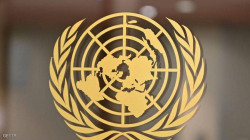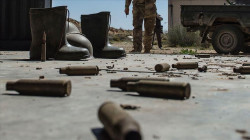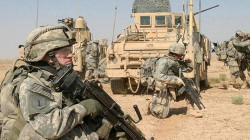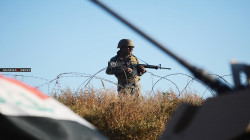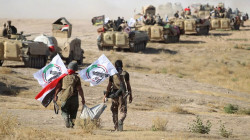Ramadan exacerbates the suffering of al-Anbar's displaced people
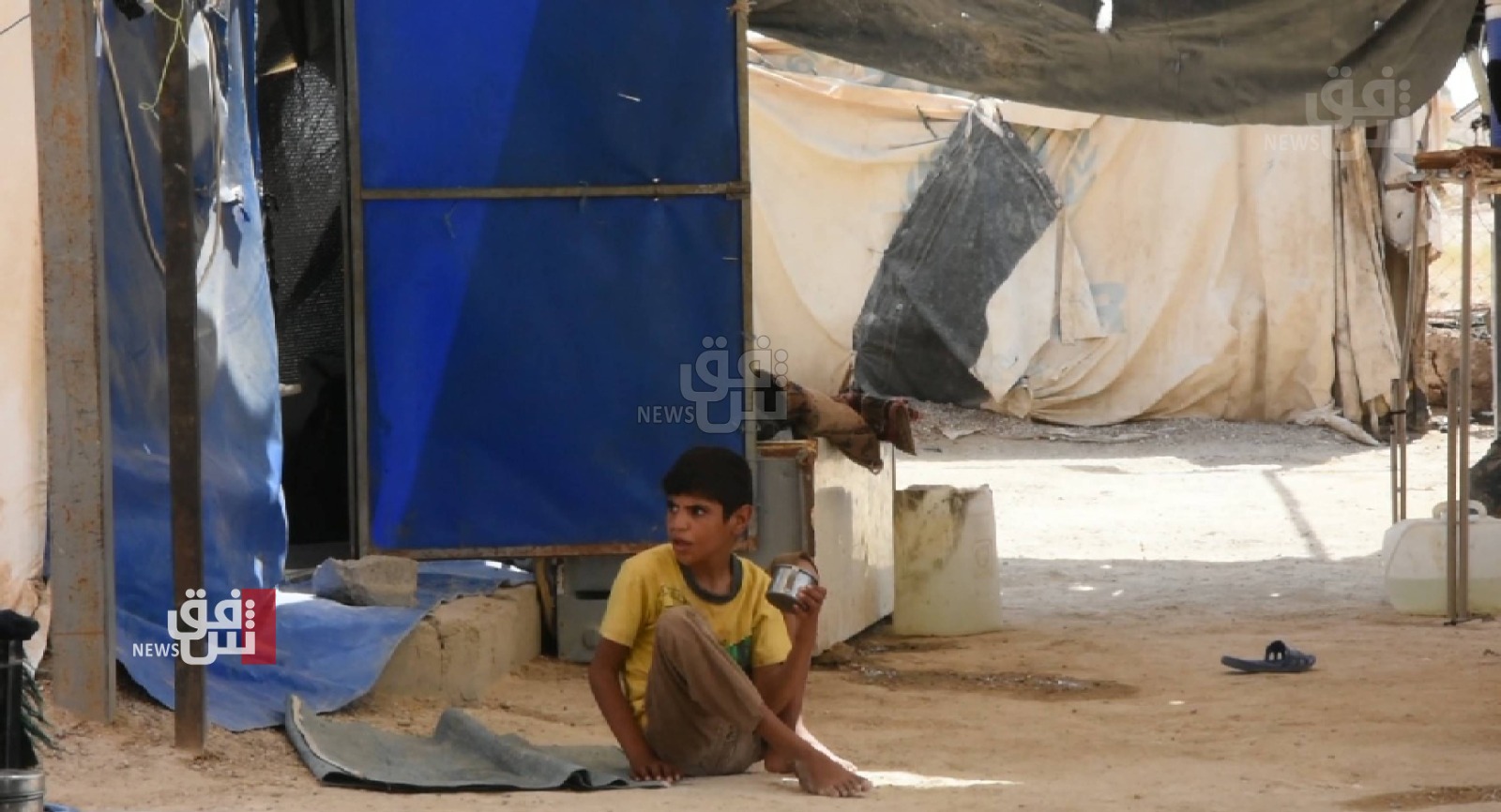
Shafaq News / For the ninth year in a row, the displaced people, particularly those from al-Anbar governorate who are currently in al-Ameriyah and Bezebiz camps, are spending the month of Ramadan in ramshackle tents, due to a variety of factors that the relevant authorities have been unable to resolve.
One of the most prominent of these factors is the tribal conflicts between the families of ISIS's victims and those involved in joining its ranks, as well as the failure to compensate those affected by the war against the terrorist organization.
"Since ISIS's 2014 attack on the governorate, which resulted in the displacement of families from al-Anbar and other cities, the displacement camps file has become a struggle for local governments, even after the liberation of Iraqi cities from ISIS in mid-October 2017," said Nabil Azzami, a social researcher in al-Anbar.
"Following the liberation, local and federal governments, as well as the Ministry of Migration, announced launching an operation to close the displacement camps, and nearly 70% of them have already been closed."
"During the 2018 elections, the candidates' most prominent promises were to close the camps, particularly those in al-Anbar, completely. However, several obstacles stood in the way, including tribal retaliation among those who remain displaced and residents of their areas of origin, "Azzami stated.
"The problem of tribal conflicts in al-Anbar is a precedent that existed before the rise of ISIS. However, the latter reinforced them and divided ranks among members of the same family, resulting in the non-return of many displaced families."
"One of the most significant impediments to resolving the displacement file is the poor economic and living conditions of many displaced families, as well as the lack of jobs, especially given that the majority of those displaced previously worked for daily wages and lived in rented houses. As a result, they regard their presence in the camp as preferable to living on street pavements, unless they have jobs to pay for their rented homes."
"The failure to compensate those affected by the war against ISIS is a major reason why many people cannot rebuild or rehabilitate their destroyed homes," Azzami continued.
"An exceptional problem has been added to the three previously mentioned ones relating to the displaced people of the Jurf Sakhar and Aweysat areas, which are linked to security and political aspects. Nevertheless, it is hoped that they will be returned soon."
Displaced people in al-Anbar camps complain about a lack of government support, calling for a radical solution to end their problems and allow them to return to their homes.
Elham Nouri, a displaced woman from al-Fallujah district who is currently in al-Ameriyah camp, on the other hand, stated that she is a mother of five children, one of whom joined ISIS, and asked, "What is my and my other four children's fault, to pay for our son's sin?"
"We immediately implemented all measures after learning that we would have to disown our son. However, when we returned to our residence in al-Fallujah, we were expelled and threatened with retaliation, with no action taken by the local government or security authorities to defend or protect us, "Nouri elaborated.
"The tribal elders or those who have threatened us should put themselves in our shoes; how could they know their son will join ISIS? what would they have done if they had known?"
"If who threatened us and prevented us from returning was an honorable man, he would not have allowed a woman with her children to live in a tent for nine years, but they did so to take over our homes, and the government helped them to do so," she said.
Arkan Saleh, a displaced person from the Habbaniyah district, told Shafaq News agency, "They want us to return to our destroyed homes to close the displacement file. What government and what kind of joke is this?"
He added, "Nobody can afford to live in a tent for a week, but we have been forced to do so for nine years. We no longer have a home to return to because it was destroyed during the war against ISIS, and we were not compensated to rebuild our home and return to it.”
"The government pays us no heed except during elections when they show deep feelings while posing for cameras to distribute blankets in the summer. Following the elections, the budget became insolvent, and the majority of the displaced families were ISIS-affiliated. Our tragedy will live on in history as a stain on the political reputation of the government."
For his part, Jassim al-Halbousi, deputy governor of al-Anbar for administrative affairs, stated, “5% of the displaced families have returned home, and there is little left for various reasons, namely, the fear of tribal retaliations and the economic situation. We are still working to address those obstacles."
"The delay in compensation has harmed the return of displaced persons, but it is out of control and a major issue even for the state because al-Anbar is not the only governorate that needs to be compensated; other governorates have also been affected, too," he said.

